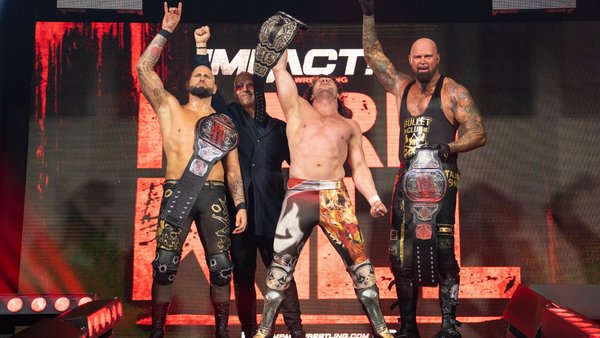How The Wednesday Night War Was Won On The Very First Night

Keith Lee was the man who toppled what felt like a thin excuse to get all the belts in the same frame, but it didn't really work.
He defeated Roderick Strong when he felt above the North American Title, and, with the momentum he generated at Survivor Series lost, he defeated Adam Cole too suddenly for it to resonate as this great achievement on the back of a richly earned story. NXT simply wanted to counter-programme Fyter Fest with a big match. Nor did NXT explore the end of the Prophesy with any real intrigue. It feels like it should have been bigger, like losing every title should have held major narrative ramifications. The pandemic didn't help, and while we've seen hints of friction, the Undisputed Era just sort of exist on Wednesday nights now.
To this day, AEW uses faction-based storytelling to deftly map journeys that preserve and build anticipation ahead of the ultimate destination: Sting and Darby Allin Vs. Team Taz; Kenny Omega's new Elite Vs. Jon Moxley and Death Triangle; Hangman Page finding his confidence with the help of the Dark Order. NXT meanwhile by tossing off workrate matches as one-week hooks finds itself in the same illogical, meh loops it has since February 2020. How is Pete Dunne a credible #1 contender to Finn Bálor's NXT Championship? He just lost clean in the middle to Kyle O'Reilly.
For the same reason Adam Cole wrestled Matt Riddle all that time ago: because the match will probably get ****1/4 irrespective of how poorly it has been built in the Observer Newsletter.
It's quite ironic: NXT has lost, past tense, for chasing the acclaim that led to AEW's formation in the first place.